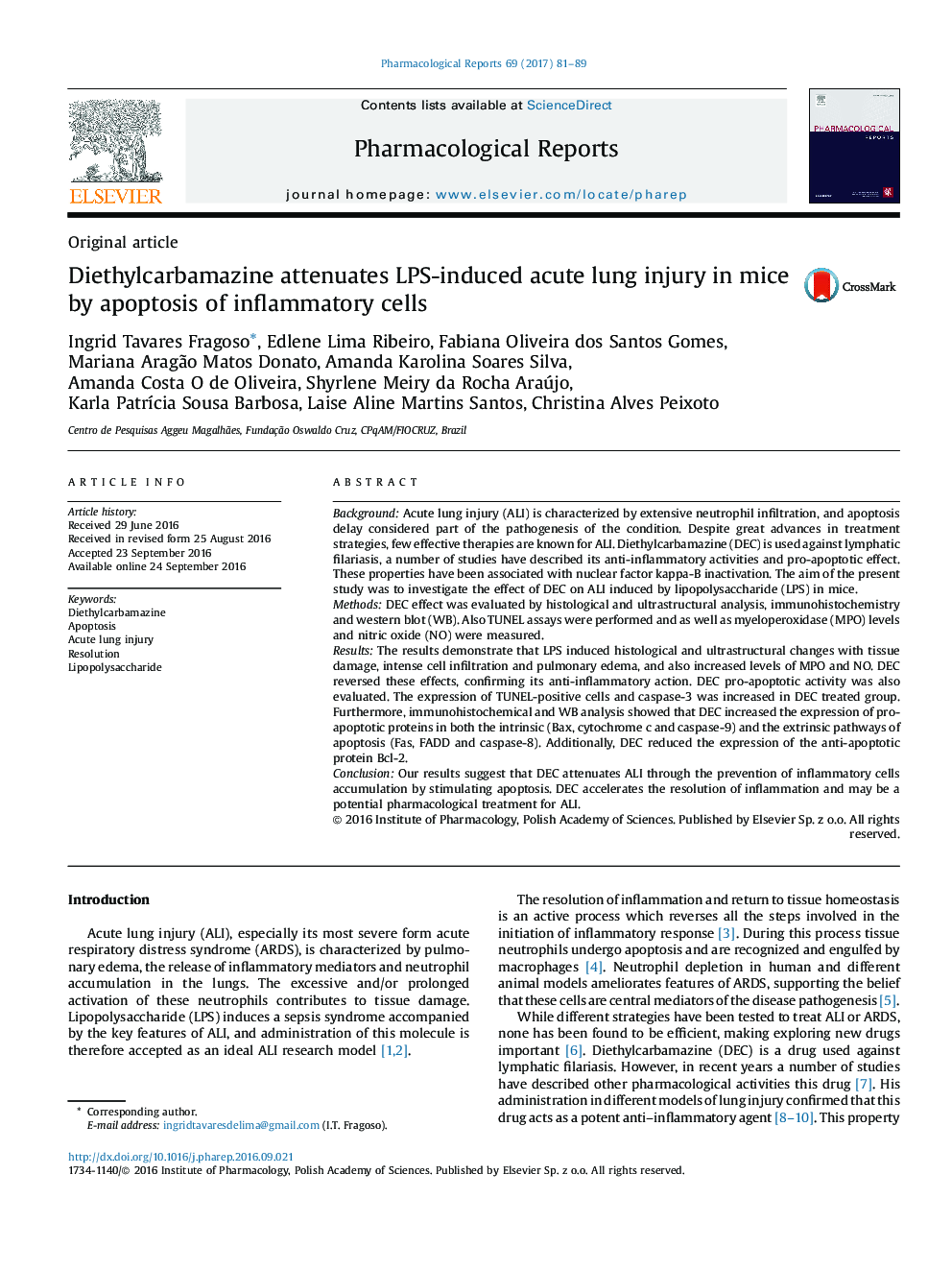| کد مقاله | کد نشریه | سال انتشار | مقاله انگلیسی | نسخه تمام متن |
|---|---|---|---|---|
| 5515114 | 1400749 | 2017 | 9 صفحه PDF | دانلود رایگان |

- Diethylcarbamazine (DEC) pretreatment reduced lung tissue damage.
- DEC inhibited the production of inflammatory markers in the lungs and BALF.
- DEC prevents NF-κB activation and IkBa phosphorylation.
- DEC attenuates neutrophil accumulation by stimulation of apoptosis.
- DEC accelerates the resolution of inflammation and may be a potential pharmacological treatment for ALI.
BackgroundAcute lung injury (ALI) is characterized by extensive neutrophil infiltration, and apoptosis delay considered part of the pathogenesis of the condition. Despite great advances in treatment strategies, few effective therapies are known for ALI. Diethylcarbamazine (DEC) is used against lymphatic filariasis, a number of studies have described its anti-inflammatory activities and pro-apoptotic effect. These properties have been associated with nuclear factor kappa-B inactivation. The aim of the present study was to investigate the effect of DEC on ALI induced by lipopolysaccharide (LPS) in mice.MethodsDEC effect was evaluated by histological and ultrastructural analysis, immunohistochemistry and western blot (WB). Also TUNEL assays were performed and as well as myeloperoxidase (MPO) levels and nitric oxide (NO) were measured.ResultsThe results demonstrate that LPS induced histological and ultrastructural changes with tissue damage, intense cell infiltration and pulmonary edema, and also increased levels of MPO and NO. DEC reversed these effects, confirming its anti-inflammatory action. DEC pro-apoptotic activity was also evaluated. The expression of TUNEL-positive cells and caspase-3 was increased in DEC treated group. Furthermore, immunohistochemical and WB analysis showed that DEC increased the expression of pro-apoptotic proteins in both the intrinsic (Bax, cytochrome c and caspase-9) and the extrinsic pathways of apoptosis (Fas, FADD and caspase-8). Additionally, DEC reduced the expression of the anti-apoptotic protein Bcl-2.ConclusionOur results suggest that DEC attenuates ALI through the prevention of inflammatory cells accumulation by stimulating apoptosis. DEC accelerates the resolution of inflammation and may be a potential pharmacological treatment for ALI.
Journal: Pharmacological Reports - Volume 69, Issue 1, February 2017, Pages 81-89